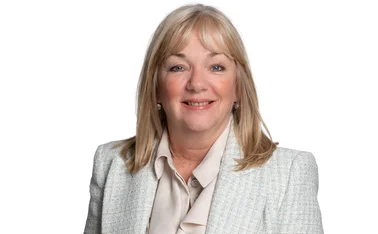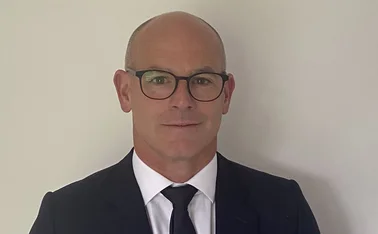
Broking success: Shop till you drop

The Policy Shop’s managing director Sean Byrne tells Caitlin Morrison why growing the broker’s key lines of business is more important than acquisitions
▶ How did the The Policy Shop get started?
It was 1992, I was at Hill House Hammond in Leicester, a company that I really enjoyed working for. We had just been bought by Norwich Union and it seemed to me that the nature of the business might change. I was also looking at the possibility of starting a new brokerage with a quasi-direct feel to it, because the direct writers were having a big impact. I thought we could have a traditional broker look and feel but have one centre that served the UK. So I handed in my notice and started The Policy Shop from very small origins. There were just two of us, with a plan to go local in personal lines, then regional and then eventually go national, which we did in 2002.
▶ How did you develop the business at the beginning?
We went into the national bike market, then vans and then onto private car.
Household we left alone for a while because we wanted to concentrate on the motor lines. In 2007 we decided to move into the household market too. It has been very good to us, and now accounts for around £9m GWP.
We have spent the last three years developing our online journey and our ability to write very non-standard property insurance, like criminal convictions, multiple claims, floods, subsidence and non-standard construction.
 We’ve taken a long time to have a really vigorous entrance to the market because we wanted to get our distribution right. We wanted to make sure we had as many leads as possible but now we’ve developed, through Transactor, a very smart online journey to deal with non-standard home, it works very well for us.
We’ve taken a long time to have a really vigorous entrance to the market because we wanted to get our distribution right. We wanted to make sure we had as many leads as possible but now we’ve developed, through Transactor, a very smart online journey to deal with non-standard home, it works very well for us.
▶ Which other lines does the business operate in?
The niche and non-standard space. With private car we look at the distressed end of the market, that’s convicted and multi-convicted driver, that kind of thing.
On the commercial vehicle side we are pretty much standard but we do have a specialist vehicle unit in the business which looks at non-standard risks. We have pulled out of the motorcycle market – I think the market is not as useful as it used to be because of the lack of premium.
Making any profit when you’re looking at cost per acquisition of £40-50 on a £90 premium is very difficult, there’s not much meat on the bone.
We have a fledgling commercial offering which is looking at SME to complement our commercial vehicle offering. We are also looking to medium-ticket commercial business in order to broaden our share of the market.

▶ Have you made any acquisitions?
No. Our GWP is currently at £25m and we want to move that on to £45m in 2016. It will be done with organic and dynamic growth in the markets we choose and by looking at smarter distributions and a more technical approach to our business.
▶ Could acquisitions be part of The Policy Shop’s future plans?
We’re currently at the start of a three-year strategy for The Policy Shop. One of the key aspects of that strategy is to focus on our technical ability. We want to build an engine room of technical people that will be able to spot opportunities within our niches and introduce them to the insurer market. That also has an effect on which software house you use and we’re trying to be flexible. We’re staying away from acquisitions until we have a really solid base. At the moment we are very focused on providing effective distribution in our key areas of business.
I also think we’ve grown quite quickly from what was a fairly small business with limited resource. We’ve kept ourselves very lean and keen on the financial side of things. I’m not ruling out an acquisition but the journey was to set ourselves up in the marketplace and to focus on growing in our core lines of business as a smart niche non-standard intermediary.
 ▶ Are you confident that you can grow the GWP to £45m?
▶ Are you confident that you can grow the GWP to £45m?
As we look at our market and review distribution and product development within our strategy we make sure that we are able to grow. That means improving our entire performance by looking at better ways to write new business and to retain our renewals. I do believe the time has come for The Policy Shop to take its place in the market as a serious player in the non-standard and niche market for insurers and with our own capacity. That will certainly increase the GWP of the business, I’m hoping it will also increase the bottom line.
▶ What are your plans around getting your own capacity?
We want to obtain our own capacity and go into the wholesale market in key lines of business, certainly in property. We think we’ve got enough experience in certain markets to develop a product, price it sensibly and actually come back with an underwriting profit. We’re not saying we’re better than any existing insurer out there. We’re saying there may be a need for us. If there are specific niches that the market doesn’t pick up that we think we can complement then we will. It will not be to the detriment of existing insurers.
▶ Would you ever consider selling the business?
Of course, everything’s for sale. At a suitable period that’s always going to be an option, but The Policy Shop is something that’s dear to my heart. I started it and it’s now in its 20th anniversary year. It’s on a brand journey. It’s important that it stays around and has a reputation in the marketplace for all things innovative and all things smart by way of distribution.
▶ What impact has the change in regulator had on the market?
It’s early days and the Financial Conduct Authority is still finding its feet. They’ve got targets to focus on and what we all have to do is look at our behaviour in selling people bundles of ancillary products and advising on the purchase of such products. We all have to future-proof our model and not stick our heads in the sand. We’ve future-proofed all our ancillary products and made sure that they stand up to inspection. I think too many people are smug about Swinton and I don’t see why. I think Swinton is a great business, and they’ve worked very hard. They’re a substantial business in our industry and we should want them to succeed. What we shouldn’t do is not learn from it. Regulation is a good thing provided we are all willing to look up soon enough and get our individual acts in order as a broking industry.
Only users who have a paid subscription or are part of a corporate subscription are able to print or copy content.
To access these options, along with all other subscription benefits, please contact info@insuranceage.co.uk.
You are currently unable to print this content. Please contact info@insuranceage.co.uk to find out more.
You are currently unable to copy this content. Please contact info@insuranceage.co.uk to find out more.
Copyright Infopro Digital Limited. All rights reserved.
As outlined in our terms and conditions, https://www.infopro-digital.com/terms-and-conditions/subscriptions/ (point 2.4), printing is limited to a single copy.
If you would like to purchase additional rights please email info@insuranceage.co.uk
Copyright Infopro Digital Limited. All rights reserved.
You may share this content using our article tools. As outlined in our terms and conditions, https://www.infopro-digital.com/terms-and-conditions/subscriptions/ (clause 2.4), an Authorised User may only make one copy of the materials for their own personal use. You must also comply with the restrictions in clause 2.5.
If you would like to purchase additional rights please email info@insuranceage.co.uk







